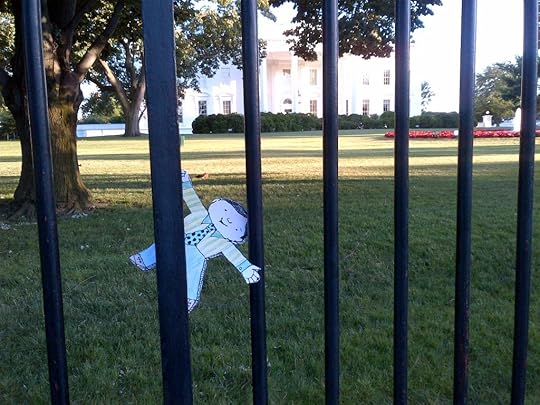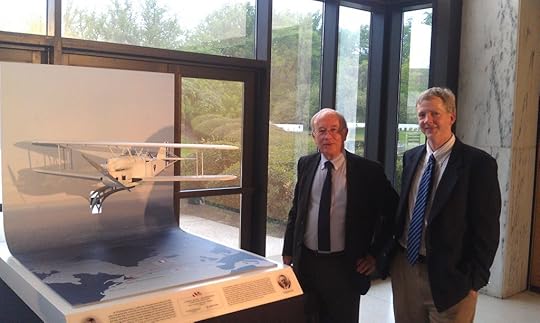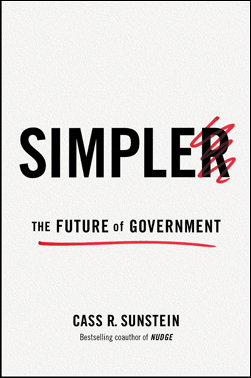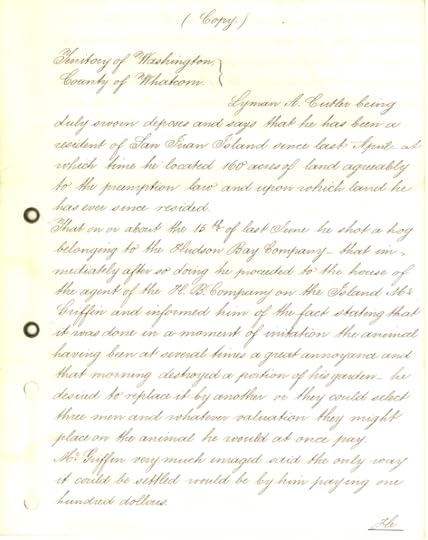David S. Ferriero's Blog, page 30
July 1, 2013
A New Deal for a New Generation
On the last day of June of 1941, Franklin Delano Roosevelt stood at the entrance to his library in Hyde Park, New York—the first of the Presidential Libraries—and dedicated it to the American people with these words:
“It seems to me that the dedication of a library is in itself an act of faith.
To bring together the records of the past and to house them in a building where they will be preserved for the use of men and women in the future, a Nation must believe in three things.
It must believe in the past.
It must believe in the future.
It must, above all, believe in the capacity of its own people so to learn from the past that they can gain in judgment in creating their own future.”
“…an act of faith.” These words are as true today as they were in 1941. In fact, just this past April, in dedicating our newest Presidential Library, George W. Bush quoted those words from President Roosevelt.

David Ferriero addresses the crowd at the FDR Library Rededication Ceremony on June 30, 2013
Yesterday at Hyde Park, we rededicated the Franklin D. Roosevelt Presidential Library and Museum, the culmination of a multi-year renovation project and exhibit redesign. A Presidential… [ Read all ]

June 20, 2013
The Heart of the Matter
Yesterday the American Academy of Arts and Sciences Commission on the Humanities and Social Sciences released their report—The Heart of the Matter: The Humanities and Social Sciences for a Vibrant, Competitive, and Secure Nation. The report is the response to a bipartisan request from members of Congress: “What are the top actions that Congress, state governments, universities, foundations, educators, individual benefactors, and others should take now to maintain national excellence in humanities and social scientific scholarship and education, and to achieve long-term national goals for our intellectual and economic well-being; for a stronger, more vibrant civil society; and for the success of cultural diplomacy in the 21st century?”
The three goals and thirteen recommendations articulate an agenda which resonates with me.
Goal 1: Educate Americans in the knowledge, skills, and understanding they will need to thrive in a twenty-first-century democracy. The National Archives has, from its beginnings, had an educational mission and today, as civic literacy is at its lowest ebb, that mandate is ever more important. The creation of and access to online resources and teaching materials provide the tools for “citizens to participate meaningfully in the democratic process” articulated in one of the recommendations.
Goal 2: Foster a society that is innovative, competitive, and strong. Supporting innovative research and discovery through our National Historical Publications and Research… [ Read all ]

June 17, 2013
Flat Stanley’s Magical Visit to Washington
Just before Memorial Day, Eva Wall, a third grader at the Fiske School in Wellesley, Massachusetts wrote to tell me that her class was working on a Flat Stanley project. If you are not familiar with Jeff Brown’s 1964 children’s classic, illustrated by Tomi Ungerer, check it out. Eva sent me a hand colored flat Stanley and my assignment—write an illustrated short story about Stanley’s visit to Washington.
Stanley and I wandered up and down the Mall looking for photo ops. At the White House a friendly security guard reminded me that sticking things through the fence was not allowed—after Stanley had already posed on the other side!
He really wanted to climb the Washington Monument but the restoration work forced him to settle for a view from a nearby tree limb.
We stopped at the National Archives, of course, and dropped in on the Archivist of the United States.
But the real excitement came on Memorial Day when Stanley got to ride on a float in the parade down Constitution Avenue.
And who should he meet along the route? George Washington, himself!
And last week Eva got to share Stanley’s adventures with her classmates. I heard that Stanley’s picture with George Washington is hanging on the bulletin board! Thanks, Eva!

June 13, 2013
Founders Online
This afternoon, the National Archives launched Founders Online—a tool for seamless searching across the Papers of George Washington, Thomas Jefferson, James Madison, Benjamin Franklin, John Adams, and Alexander Hamilton. Our National Historical Publications and Records Commission (NHPRC) has been funding these projects in paper for some time. Working with Rotunda at the University of Virginia Press and the editors of the six papers project, Founders Online was created with NHPRC funding to provide simultaneous searching across all six collections at once.
Through Founders Online you can now trace the shaping of the nation, the extraordinary clash of ideas, the debates and discussions carried out through drafts and final versions of public documents as well as the evolving thoughts and principles shared in personal correspondence, diaries, and journals. This beta version of Founders Online contains over 119,000 documents, and new documents will be added to the site on a continual basis.
You can see first-hand the close working partnership between George Washington and Alexander Hamilton from their time in the Revolutionary War to Hamilton’s draft of Washington’s Farewell Address. Or read John Adams’ description of Congress as a place where “There is so much Wit, Sense, Learning, Acuteness, Subtilty, Eloquence, etc. among fifty Gentlemen, each of whom has been habituated to lead and guide in… [ Read all ]

June 4, 2013
Aiding in the Search for The White Bird
When Charles Lindbergh landed at LeBourget Field outside of Paris on the 21st of May 1927, among his first words- “Is there any news of Nungesser and Coli?” On the 8th of May, French aviators Charles Nungesser and Francois Coli took off from LeBourget in their plane, The White Bird, in an attempt to be first to fly nonstop from Paris to New York. French researcher, Bernard Decre, using the records of the National Archives, aims to tell the story of what happened to The White Bird.
Researcher Bernard Decre and National Archives staff member Mark Mollan at the French Embassy next to an exact model of the plane flown by the French aviators. Photo taken by Trevor Plante.
In May of 1919, French Hotelier Raymond Orteig offered a $25,000 Orteig Prize to the first aviator to fly across the Atlantic non-stop between New York and Paris- in either direction. Many aviators made unsuccessful attempts to capture the prize, but it was Charles Lindbergh flying The Spirit of St. Louis who won.
The French Government maintains that The White Bird went down in the English Channel and Mr. Decre has been working with Mark Mollan, our expert on U.S. Navy and U.S. Coast Guard records to prove that it made it across the Atlantic. Between May and August of 1927, using the… [ Read all ]

May 29, 2013
Simplification
Cass Sunstein, former Administrator of the Office of Information and Regulatory Affairs, in his new book, Simpler, shares the three most important things he learned during his time in the White House.
“People stop making some important mistakes when they speak in a foreign language.” Citing the example of cost-benefit analysis as a foreign language, he described it as a great “engine of simplification” by displacing intuitions and counteracting hysteria-forcing people unfamiliar with the language to slow down and act deliberately. This makes me wonder about the “foreign language(s)” we are using in our work and, therefore, the impact on those on the receiving end.
The second lesson deals with unnecessary complexity in rule making. While the rules make sense to the rule writers, they are often “complex, frustrating, and incomprehensible to the public.” Sunstein wrote the guidance on implementing the Plain Writing Act of 2010 calling for writing which is “clear, concise, well-organized, and consistent with other best practices appropriate to the subject or field and intended audience. Such writing avoids jargon, redundancy, ambiguity, and obscurity.” Makes me wonder how we’re doing on all of our “rule making” for other agencies and the general public.
“News Note, 3/16/1911.” Berryman Political Cartoon Collection. National Archives Identifier 6010881
“Those who have the privilege of serving the American people should listen closely to… [ Read all ]

May 20, 2013
Round Two of US-Canadian Rivalry
On the 15th of June in 1859, Lyman Cutlar, an American recently settled on San Juan Island, shot a pig which ” … having been at several times a great annoyance and that morning destroyed a portion of his garden … ”
Affidavit of Lyman A. Cutlar Regarding Pig Shooting, September 7, 1859
(click on image to view the complete 5-page document in our Flickr photostream)
The pig belonged to the British Hudson Bay Company who demanded compensation in the amount of $100. The astonished Cutlar valued the pig at less than $10. While not the shot heard round the world, it did mark the beginning of the Pig War-a border dispute between the United States and Canada. While that was the only shot fired, twelve years of posturing on both sides which included troops and navies and some soon to be famous Civil War principals, George E. Pickett and Winfield Scott. The Treaty of Washington between the United States and Great Britain was signed in 1871 and the San Juan Island matter referred to Kaiser Wilhelm I of German for arbitration and in October of 1872 ruled in favor of the United States.
An early commemoration of the anniversary of The Pig War was the excuse for the staff of the National Archives in Washington and our friends across the street at the Canadian Embassy to once again test public opinion-this time… [ Read all ]

May 15, 2013
Open Government Appreciations
This week the American Society of Access Professionals (ASAP) honored the National Archives with its two highest awards. The President’s Award for Distinguished Public Service was awarded to Miriam Nisbet, Director of our Office of Government Information Services (OGIS). And the Director’s Award for Superior Public Service was awarded to the Public Interest Declassification Board (PIDB). PIDB is an advisory board created by Congress to promote access to national security decisions and activities. Our Information Security Oversight Office (ISOO) Director serves as the PIDB Executive Secretary and ISOO staff support the work of the board.
The President’s Award is the highest honor that ASAP grants recognizing distinguished and sustained contributions in the furtherance of the public interest with respect to access, privacy, and fair information laws, policies, and practices. ASAP noted Miriam’s work in FOIA at the Justice Department and then in the National Archives General Counsel’s office during the 1990’s, as legislative counsel for the American Library Association and then UNESCO in Paris. Special recognition was focused on her work to establish and head OGIS, created by the 2007 amendments to the FOIA. In accepting the award, Miriam pointed out that she had grown up along with the FOIA and that OGIS represents the maturity of a law that is one of the hallmarks of open government… [ Read all ]

May 8, 2013
Happy Public Service Recognition Week!
Yesterday we celebrated the accomplishments of National Archives staff across the country in our annual Archivist’s Awards Ceremony.
I read from Senate Resolution 99 which commends public servants for their dedication and continued service to the United States and acknowledging that ” … public service is a noble calling.” I also read from President Obama’s Public Service Recognition Week greetings: “In communities across our country, public servants at the Federal, state, and local levels tirelessly carry out the work of our government. Diligently serving without the expectation of fanfare, they enforce our laws, teach our children, and lay a strong foundation for our Nation’s progress. Our dedicated employees are committed to a cause greater than personal ambition, and each day, they tackle many of our most urgent challenges and help us move closer to a more perfect Union.”

Photograph of desk installed in National Archives Library, 1950. National Archives Identifier 3493214
We created a little internal fanfare yesterday by recognizing staff for protecting and recovering stolen records, for outstanding service and support of our nation’s veterans, for achievement in engaging our citizens, for developing the Presidential Memorandum and Directive on Managing Government Records, for efforts to increase National Declassification Center production, to name just a few of awards tied closely to our Transformation pillars.
We also celebrated long term… [ Read all ]

May 6, 2013
You Are What You Search
In early December 2009 Google announced on their blog titled “Personalized Search for Everyone” that they would be using 57 “signals” derived from your previous searching behavior in order to predict the sites you were most likely to choose in your search. Netflix, Yahoo, Facebook, and YouTube, to mention just a few, use similar predictive Internet filters based on who you are, past searching behavior, and limiting hits to what fits your profile. Eri Pariser in his book, The Filter Bubble: What the Internet Is Hiding from You, describes the result as “invisible autopropoganda-indoctrinating us with our own ideas, amplifying our desires for things that are familiar and leaving us oblivious to the dangers lurking in the dark territory of the unknown.” A space outside our own comfort zone where there is less room for those chance encounters that bring insight and learning.
Cass Sunstein, in his book, Infotopia: How Many Minds Produce Knowledge, describes the problem as information cocoons-”communications universes in which we hear only what we choose and only what comforts and pleases us.” Where we choose to get our information, what we choose to read or listen to, and the avoidance of those channels that are outside our own comfort zone. As Pariser reminds us, “Creativity is often sparked by the collision of ideas from difference disciplines and cultures.”
Don’t… [ Read all ]

David S. Ferriero's Blog
















